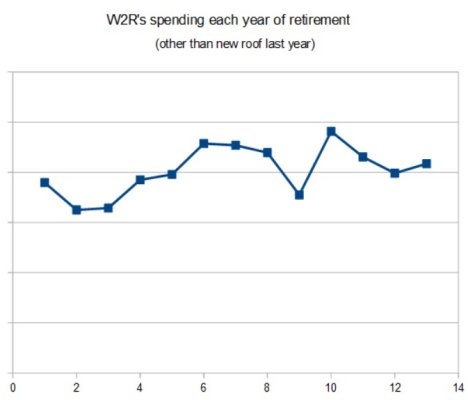Was talking to a friend this weekend, and we were chatting about retirement income, and he made a pretty simple comment to me. At first, we just moved on in the conversation. But throughout the weekend, I've been thinking more and more about it, and its sort of depressing.
He said "isnt it strange that we save our entire lives so that we can retire, and we choose the goal-line as the point in time where we don't have to work to support our current way of life."
One of the fundamentals of retiring early is clearly to avoid living beyond your means, but what if what you want out of retirement involves spending more, traveling more, seeing more, doing more?
Im curious how you all approach this. Did you spend more in retirement than you did while working? Did you adjust your retirement draws to accomplish this task before you actually retired? I see many comments by retirees in these threads at how difficult of a concept it is to spend more, especially when you trained yourself for a lifetime to not life beyond your means.
Maybe the depressing part of it is knowing you'll never have enough money to ________, which I would suspect is common in most americans as we age...
And yes, part of these are shallow thoughts. But curious what others think.
He said "isnt it strange that we save our entire lives so that we can retire, and we choose the goal-line as the point in time where we don't have to work to support our current way of life."
One of the fundamentals of retiring early is clearly to avoid living beyond your means, but what if what you want out of retirement involves spending more, traveling more, seeing more, doing more?
Im curious how you all approach this. Did you spend more in retirement than you did while working? Did you adjust your retirement draws to accomplish this task before you actually retired? I see many comments by retirees in these threads at how difficult of a concept it is to spend more, especially when you trained yourself for a lifetime to not life beyond your means.
Maybe the depressing part of it is knowing you'll never have enough money to ________, which I would suspect is common in most americans as we age...
And yes, part of these are shallow thoughts. But curious what others think.
Last edited:


